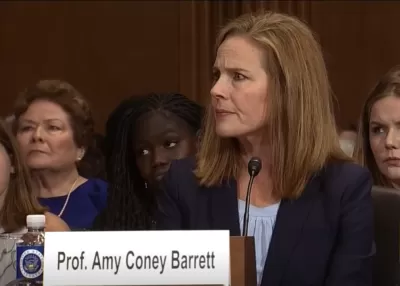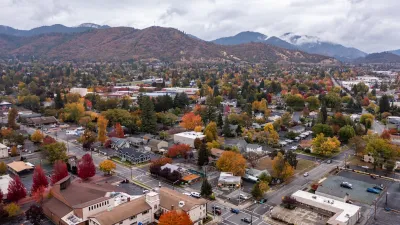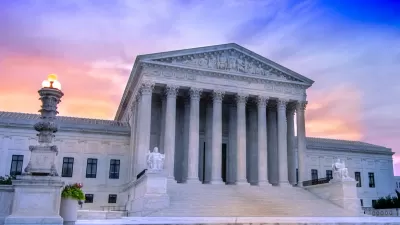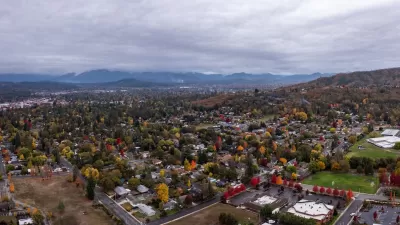A month ago, Barrett dismissed a challenge to Chicago's deal with the Obama Center by rejecting a very expansive claim of a "taking" under the 5th Amendment and by showing great deference to the city.

Amy Coney Barrett, President Trump’s nominee to replace Ruth Bader Ginsburg on the U.S. Supreme Court, has a thin judicial record on property and environmental issues. Environmental group are excoriating Barrett as a threat to all efforts at environmental protection, particularly combatting climate change. And many environmentalists are concerned that by reducing the number of liberal justices on the high court to three, public-interest-oriented cases in the environmental and property arenas won’t even get a hearing in front of the Supreme Court because it takes four votes to hear a case.
To be sure, Barrett’s confirmation would pull the court in a conservative direction on property and environmental issues. Recently she joined a majority of the Seventh U.S. Circuit Court of Appeals in rejecting the argument that wetlands surrounded by residential development, 11 miles from the nearest navigable waterway, required a federal permit, as the Army Corps of Engineers argued. But she did not write the ruling.
And In the one environmental/property opinion she has written as a member of the Seventh Circuit – issued only a month ago – Barrett rejected a very expansive federal takings claim and showed extreme deference to the City of Chicago. She also showed herself to be extremely careful in her legal reasoning and an unusually clear and accessible writer of judicial opinions.
FULL STORY: Barrett's Only Property Rights Ruling: Careful, Narrow, Deferential

Study: Maui’s Plan to Convert Vacation Rentals to Long-Term Housing Could Cause Nearly $1 Billion Economic Loss
The plan would reduce visitor accommodation by 25,% resulting in 1,900 jobs lost.

North Texas Transit Leaders Tout Benefits of TOD for Growing Region
At a summit focused on transit-oriented development, policymakers discussed how North Texas’ expanded light rail system can serve as a tool for economic growth.

Why Should We Subsidize Public Transportation?
Many public transit agencies face financial stress due to rising costs, declining fare revenue, and declining subsidies. Transit advocates must provide a strong business case for increasing public transit funding.

How to Make US Trains Faster
Changes to boarding platforms and a switch to electric trains could improve U.S. passenger rail service without the added cost of high-speed rail.

Columbia’s Revitalized ‘Loop’ Is a Hub for Local Entrepreneurs
A focus on small businesses is helping a commercial corridor in Columbia, Missouri thrive.

Invasive Insect Threatens Minnesota’s Ash Forests
The Emerald Ash Borer is a rapidly spreading invasive pest threatening Minnesota’s ash trees, and homeowners are encouraged to plant diverse replacement species, avoid moving ash firewood, and monitor for signs of infestation.
Urban Design for Planners 1: Software Tools
This six-course series explores essential urban design concepts using open source software and equips planners with the tools they need to participate fully in the urban design process.
Planning for Universal Design
Learn the tools for implementing Universal Design in planning regulations.
City of Santa Clarita
Ascent Environmental
Institute for Housing and Urban Development Studies (IHS)
City of Grandview
Harvard GSD Executive Education
Toledo-Lucas County Plan Commissions
Salt Lake City
NYU Wagner Graduate School of Public Service





























